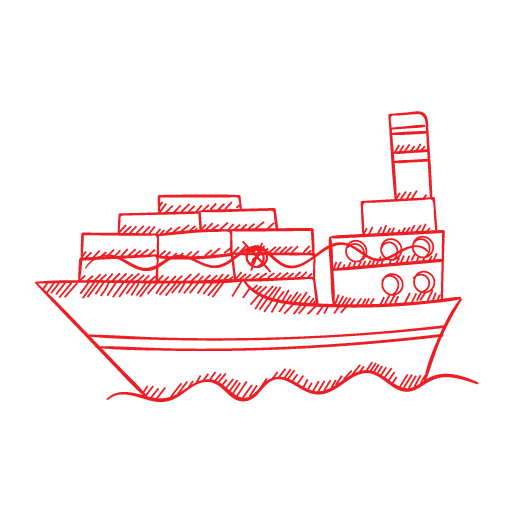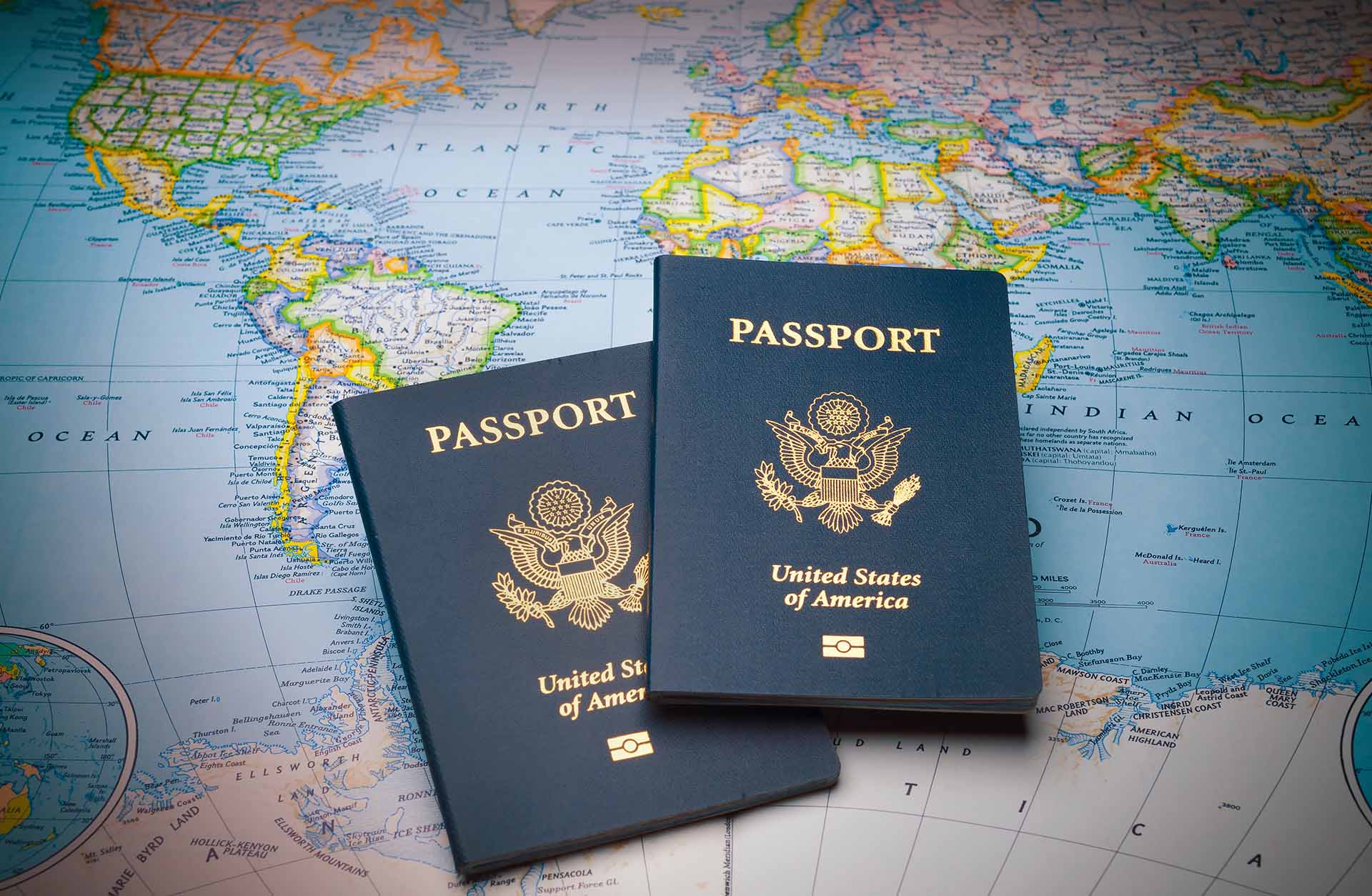Moving overseas is a big undertaking, but flying with prescription medication is a whole other beast – you need to know which medications are allowed or restricted in certain countries, how much you can bring with you, and what paperwork you should have. So, let’s take a look at the rules, regulations, and tips for transporting your medications on an international flight.

The Importance of Properly Transporting Prescription Medication During International Flights
Moving abroad can be a challenging and stressful experience, as it requires a significant amount of planning and coordination, from getting a job in a new city to figuring out how to pack fragile items. It can be overwhelming to decide what to keep, donate to Goodwill, or throw away, and then to safely pack everything for an efficient move.
On top of that, there’s a lot of logistical planning involved, including arranging everything with the overseas moving company to researching the laws of your destination. If you’re bringing your prescription medication along for the ride, it’s crucial to comply with the regulations surrounding them, as failure to do so can lead to serious consequences, such as confiscation or legal repercussions. So, let’s take a look at what you need to do to transport your medication safely and legally – it’ll be your ticket to a stress-free move.
Understanding Airline and TSA Regulations for Prescription Medication
The packing services of your chosen international moving company will help you with most of the tasks, from packing furniture to making sure everything is going according to the packing schedule. With their professional help, everything that needs to be transported during your move to a new city will be taken care of. That even includes taking your trusty four-wheeler with you, as most reputable movers offer overseas vehicle shipping services.
However, there are certain things you simply need to handle on your own, and figuring out how to safely transport your prescription medication is one of those things. That’s why it’s crucial to familiarize yourself with the regulations set forth by both the airline and the Transportation Security Administration (TSA) when you’re in the process of moving internationally.
TSA Guidelines for Medication
The Transportation Security Administration, better known as TSA, is a US government agency responsible for ensuring the safety and security of transportation systems, particularly air travel. Their primary job is to screen passengers, baggage, and cargo at airports to prevent threats such as terrorism and other illegal activities.
While airline policies for medication can vary depending on the company and destination, TSA has specific guidelines for carrying medication through security checkpoints. Here are the most important TSA guidelines to keep in mind:
- Medication in solid or liquid form is allowed in carry-on and checked baggage,
- Liquids exceeding 3.4 ounces or 100 milliliters must be declared and placed in a clear, quart-sized bag,
- Medication should be properly labeled with the patient’s name, prescription information, and dosage,
- It’s recommended to carry a prescription or doctor’s note for controlled substances or if traveling with large quantities of medication,
- Medication should be packed in its original packaging whenever possible,
- Syringes and other medical equipment should be properly labeled and stored.
How to Properly Label and Pack Medication for Air Travel
When it comes to packing tips, there’s always one that gets thrown around a lot, and that’s to label everything. The same goes for medication – properly labeling it for air travel is crucial to ensure its safety and accessibility during the flight.
So, make sure to follow the guidelines listed above – if everything is clearly labeled, and you’ve managed to keep it in its original packaging, there shouldn’t be any problems preventing you from getting onto that flight.

Preparing for the Flight
When you’re relocating across the world, it’s just not possible to handle it as a last-minute move. A lot of planning should be done until the moving day, and preparing for your flight is a crucial step. So, it’s essential to make sure you have all of the important documents, such as your passport or ID and any required visas or permits, long before your flight. If medication is involved, you should take an extra step to ensure a safe and stress-free journey.
Request Necessary Paperwork or Prescriptions
Consulting with your doctor or pharmacist before traveling with medication is an unavoidable part of the whole process. They can provide valuable information on how to properly transport and store your medication, as well as any potential drug interactions or side effects to be aware of during travel.
Your doctor or pharmacist should also provide you with a copy of your prescription or a letter detailing your medical condition. This is especially important when relocating to another country that has strict laws and regulations regarding medication. If you have any other concerns or questions about the process, your doctor or pharmacist should be able to help you every step of the way.

Packing and Transporting Medication
Obviously, safely storing your medication is a more complicated process than packing clothes, for example. That’s because you have to think about a lot of different things at the same time, and that can be difficult to navigate through.
But carefully going over each guideline mentioned above and making sure that the medication is packed in its original packaging with the label intact, as well as prescription information, can go a long way in ensuring a smooth trip.
Tips for Storing Medication During the Flight
Here are a few tips and hacks concerning what to do with your medication during your international flight:
- Carry medication in your carry-on luggage to ensure accessibility and prevent loss or damage,
- Avoid storing medication in direct sunlight or in high temperatures, which can compromise its effectiveness and quality,
- If you have medication that needs to be taken at a specific time, set an alarm or reminder on your phone or watch to help you remember,
- If you’re traveling across multiple time zones, adjust your medication schedule accordingly to prevent missed doses,
- Keep the medication out of reach of children and pets during the flight.
Handling Medication During Layovers and Connecting Flights
While storing your medications for the flight, it’s important to consider bringing extra medication in case of unexpected delays or travel disruption. If you have it packed in your carry-on bag, you’ll be able to easily access it during the layover. For additional tips and insight into the whole process, here’s a helpful video:
Getting Through Customs
Getting through customs with medication requires careful planning and preparation to ensure compliance with local regulations. As mentioned, it’s essential to familiarize yourself with the laws and regulations of the country you are visiting regarding medication importation, as some countries have strict laws and may require permits or additional documentation.
How to Declare Medication at Customs
When you arrive at customs, approach the customs officer and inform them head-on that you are carrying medication. Be prepared to show them your prescription or doctor’s note and any necessary documentation. It’s essential to be upfront and honest about your medication, as well as your reasons for relocating, to prevent any misunderstandings or legal issues.
Handling Medication Restrictions in Different Countries
Make sure to avoid the common relocation mistake of not thoroughly researching the country you’re planning to live in. Some places may have strict regulations regarding controlled substances, such as opioids or stimulants, while other countries may prohibit certain medications from shipping overseas altogether.
So, take time and effort to look into the different regulations, as overlooking them can lead to serious legal consequences. As you’re researching, learning a new language, and preparing for the inevitable culture shock, it’s best to leave the rest to a reputable overseas moving company such as I Love International Moving. While you’re flying by air, your belongings can be shipped with their international moving services, and you can focus on other aspects of this life-altering journey.
Additional Tips for Flying With Prescription Medication
When you’re going through the process of relocating, you’ll be met with numerous moving hacks and other tips, from how to adjust to a new country to the most efficient ways to unpack after the whole ordeal is done. By now, we’ve covered the most important aspects of transporting your prescription medication, but let’s take a look at a few additional tips that might be useful.
How to Deal With Medication That Requires Refrigeration
If you’re traveling with medication that requires refrigeration, it’s important to take extra precautions. So, before your trip, research the availability of refrigeration options on your flight, or pack your medicine in a small insulated bag with cold packs to keep it at the proper temperature. If you’re traveling with a cooler or other refrigeration equipment, make sure it’s properly labeled and packed according to airline regulations.
How to Handle Medication Changes During Travel
If you want to be extra careful, you should contact your current doctor or pharmacist to ask for a referral to a healthcare provider in your new location. That’s because you will need to consult with a local doctor or pharmacist in the case of any unexpected changes occurring during travel.

What to Do if Medication Is Lost or Stolen
Stolen or lost medication can be a stressful and potentially dangerous situation. The first step is to report the loss or theft to the local authorities or airport staff as soon as possible. They can provide assistance and help you locate the missing medication if possible.
Depending on the situation, you may be able to get a prescription or refill from a local pharmacy or have medication shipped to your location. It’s also recommended to contact your insurance provider and embassy for assistance if needed.

For Best Practices, Consult With a Doctor or Pharmacist Before Traveling With Medication
All in all, the most important part of transporting your medication is to familiarize yourself with the rules and regulations, as well as consult with your doctor every step of the way. That’s why it’s best to hire a professional overseas shipping company to handle the rest. So, contact us today and learn more about the benefits of relocating with experienced movers by your side.
FAQ
Yes, you can bring prescription medication on a plane, but it must be properly labeled and packed according to TSA guidelines.
You can take your medication during the flight, but make sure it’s easily accessible in your carry-on bag.
Yes, it’s recommended to declare your medication at customs and present any necessary documentation or permits.
Yes, you can bring liquid medication on a plane, but it must be properly labeled and packed in a clear plastic bag.
Pack medication in its original packaging with the label intact and store it in your carry-on bag.
Yes, you can bring medical equipment and syringes on the plane, but they must be properly labeled and stored.
If your medication is confiscated at customs, contact a local doctor or pharmacist for assistance in obtaining a replacement.
Pack refrigerated medication in a cool bag or container with cold packs and monitor the temperature regularly.
Yes, you can bring over-the-counter medication on a plane, but it must be properly labeled and packed according to TSA guidelines.
Report the loss or theft to local authorities or airport staff and consult with a local doctor or pharmacist for advice on obtaining a replacement.













